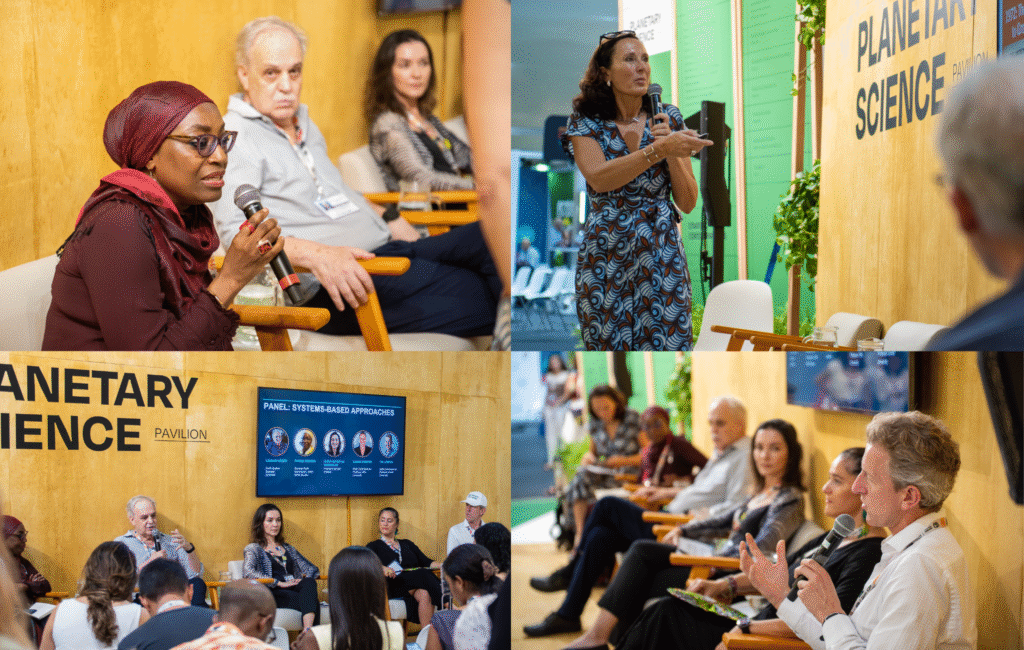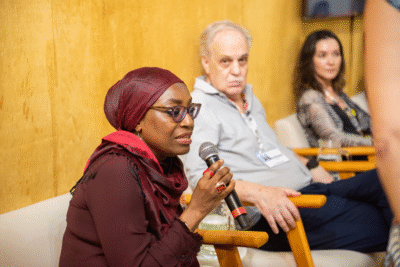Home » Latest news »
Safe, just and systemic action for climate policy at COP30
12/11/2025
What’s holding back the safe, just and systemic action needed to progress science-based pathways for climate policy?
This was the central theme of a discussion hosted by Global Commons Alliance, Earth4All and Earth Commission this morning at the Planetary Science Pavilion in Belem at COP30.
Speakers included:
- Sandrine Dixson-Declève, Executive Chair, Earth4All
- Johan Rockström, Director, PIK – Potsdam Institute for Climate Impact Research and Co-Chair, Earth Commission
- Wendy Broadgate, Executive Director of the Earth Commission and Future Earth Global Hub Director
- Fatima Denton, Director of the African Climate Policy Centre, Co-chair, Earth Commission
- Carlos Nobre, Earth System Scientist, University of São Paulo’s Institute for Advanced Studies, and Chair, Earth4All Brazil Transformative Economics and Planetary Boundaries Commission
- Ilona Szabó de Carvalho, Co-founder and President of the Igarapé Institute
- Laura Pereira, Professor of Sustainability, Wits University, and Member, Earth Commission
- Tim Lenton, Director of the Global Systems Institute, University of Exeter and Chair in Climate Change and Earth System Science
There was clear consensus:
- Populist politics present the most significant direct barrier. Around the world populist leaders who deny climate and wider ecological realities are putting up roadblocks to climate action and are rolling back hard-won progress of recent years. They enable the worst companies to continue to wreck havoc and those which could otherwise be persuaded to act to delay. We need participatory politics which spreads power across societies if we are to build a just world on a safe planet.
- Culture and public engagement are essential and need more focus across our movement. Ordinary people need to understand the risks associated with continued earth system degradation and to understand their role influencing systemic change.
- We need to recognise the deep interdependencies of our human-systems and the earth system. We need to deeply understand these connections through scientific research and modelling but we also need to simplify this and encourage people to adopt a mindset of planetary stewardship.
- We also recognized the urgency of action on this agenda. The Amazon remains at a critical tipping point—President Lula’s efforts have helped slow deforestation, but losing the Amazon would be catastrophic for climate, biodiversity, and global wellbeing. This and other global commons must be urgently protected and, where possible, restored.

These are themes which have come up again and again as the Global Commons Alliance has consulted with partners and allies about our evolution towards becoming a more holistic alliance.
Learn more about how the Global Commons Alliance is evolving.
